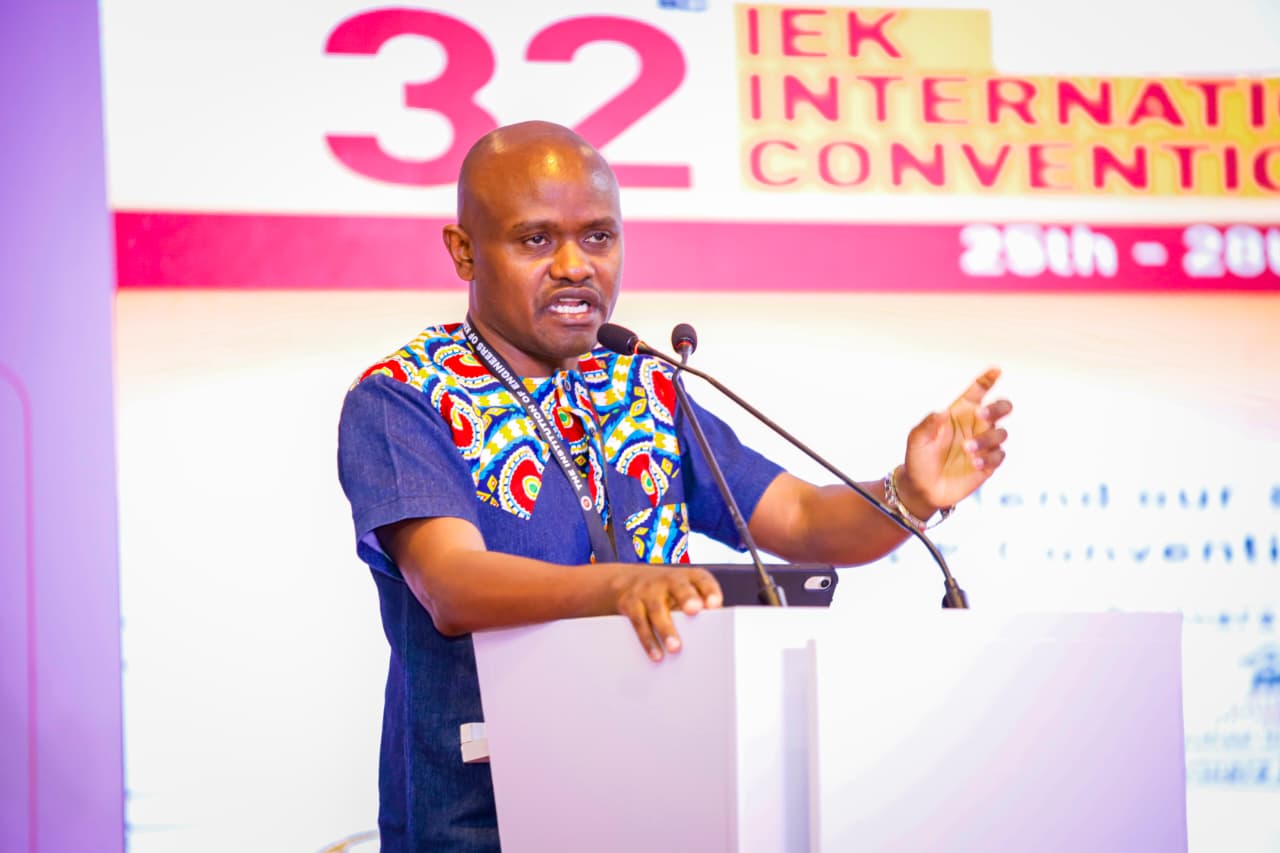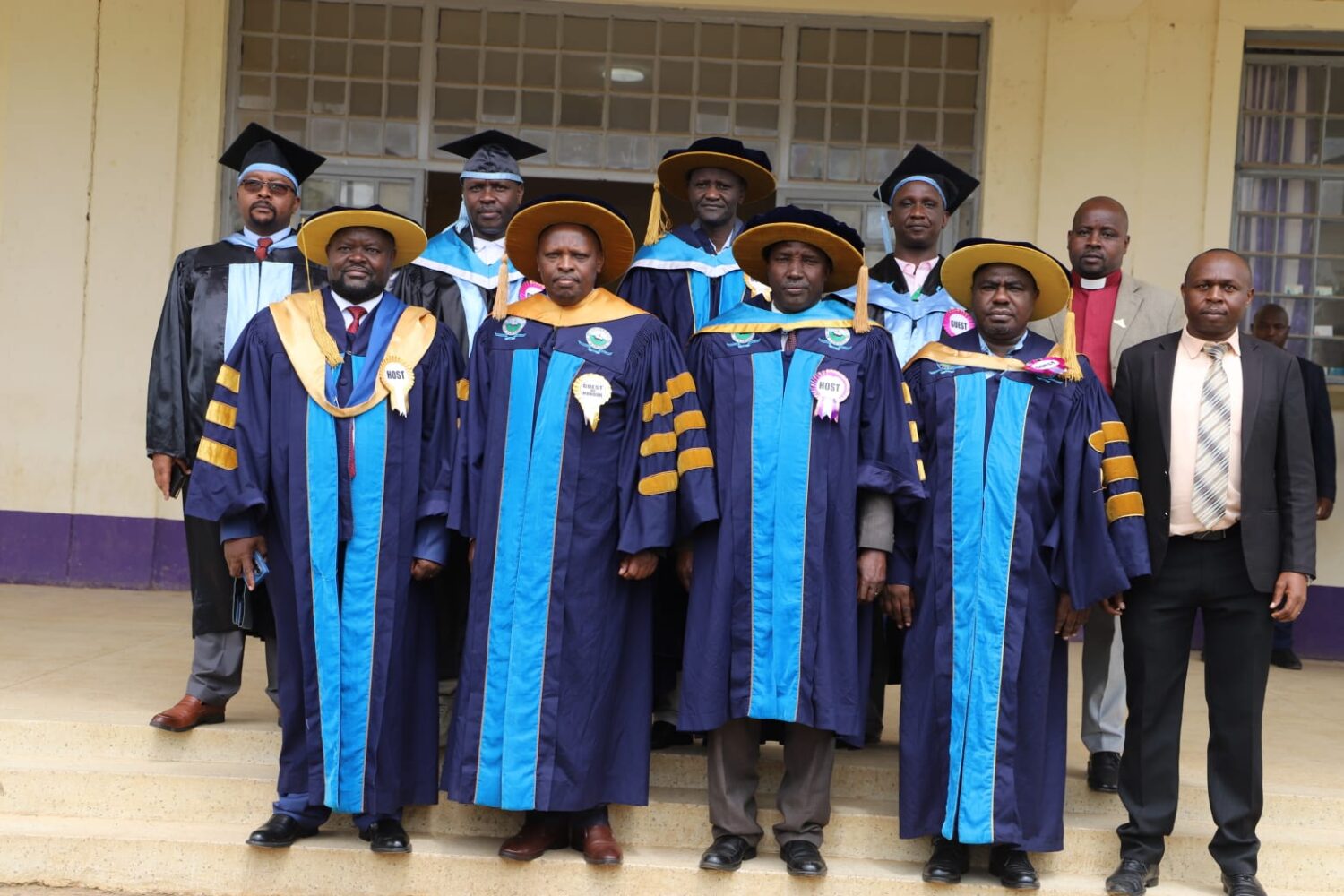Emerging engineers have been urged to embrace innovation, entrepreneurship and artificial intelligence (AI) as the defining tools of the next generation of infrastructure and economic transformation. Speaking during the Institution of Engineers of Kenya’s 4th Future Leaders Summit in Mombasa, themed “Engineering the Future: The Role of Emerging Engineers,” Caroline Wanjeri Kihara, Director of Mortgage Business at KCB Bank, called on young professionals to take bold steps to prepare for a rapidly shifting technological landscape.
Kihara, urged emerging engineers to recognise the immense responsibility they carry in shaping Kenya’s infrastructure, energy systems, digital transformation journey and future cities. She said the engineering profession is entering an era where human ingenuity must work hand-in-hand with advancements such as AI, automation, and data-driven decision-making.
“At the centre of everything we build from infrastructure and housing to energy networks and digital systems; stands an engineer. But the engineer of tomorrow must be visionary, adaptable, and comfortable leveraging new technologies, especially AI, to solve problems at scale,” she said.
In her remarks, Kihara stated that Kenya’s economic future is intricately tied to the work of engineers, noting that billions invested in roads, power lines, urban development, industrial facilities and digital connectivity rely heavily on engineers’ competence and innovation.
“You are the voices behind infrastructure, housing, energy, transport, digital connectivity and now the technologies that will define the next chapter of energy and economic transformation. Every time we break ground on a new road, erect a power line, or roll out industrial systems, we rely on engineers to validate the integrity, functionality and impact of those investments,” she said.
She challenged young engineers to understand the magnitude of that responsibility, urging them to continuously acquire future-ready skills.
Kihara said that Kenya and the wider African region is being shaped by four interlinked forces that future engineers must master: entrepreneurship, leadership, talent development, and innovation. At the centre of these, she said, is the ability to integrate emerging technologies such as AI into practical solutions.
“The world is shifting, and so must the engineer. Technical skills alone are no longer enough. The future belongs to professionals who can merge engineering expertise with innovation, creativity, entrepreneurship and digital intelligence such as AI,” she said.
Kihara noted that AI is already transforming how infrastructure is designed, monitored and maintained, how cities are planned, and how industries operate from predictive maintenance to smart grids, disaster modeling, housing finance analytics, and environmental monitoring.
She encouraged engineers to explore AI-powered tools and position themselves as leaders in digital transformation.
“AI is not replacing engineers it is amplifying the engineer’s mind. Those who learn to use it will not just survive; they will lead,” said Kihara.
Drawing from her experience at the KCB Foundation, where the bank supports thousands of students annually through high school and university education, Kihara spoke passionately about mentorship and generational responsibility.
She reminded the delegates that progress is only sustained when each generation opens doors for the next.
“It is very important that we leave grounded ladders not just ladders for the future generation. We found open doors, and we must leave them wider. Ask yourself: Are you leaving grounded ladders for future leaders? Because mentorship and access are as important as innovation itself,” Kihara said.
Kihara praised initiatives like the IEK Future Leaders Summit for providing young professionals with the networks, mentors and exposure needed to grow into future industry leaders.
While encouraging engineers to embrace entrepreneurship and innovation, Kihara cautioned against abandoning the core values of the profession which are integrity, ethics and responsibility.
“As you rise in your career, remember that engineering is not just about technical excellence. It is about integrity and the ethical responsibility that comes with designing systems people depend on every day,” she said.
She noted that as engineers begin to integrate AI and advanced digital systems into public infrastructure, ethical leadership will become even more crucial.
Kihara also urged engineers to remain connected to communities, sharing knowledge and inspiring young people to pursue STEM (Science, Technology, Engineering and Mathematics).
She reflected on her own experience visiting schools to encourage students to pursue STEM courses, noting that the impact of such outreach continues long after the visit.
“Sometimes the work you do does not ask for rewards, it blesses the future. When you expose young students to engineering, science and technology, you are planting seeds that will shape the country decades from now,” Kihara said.
She added: “Engineering the future will require a new breed of problem-solvers — those who are entrepreneurial, tech-savvy, innovative and courageous enough to use AI and emerging technologies to transform society.You carry the possibility of this country. And the future depends on how boldly you choose to innovate.”
IEK President Eng. Shammah Kiteme challenged young engineers to view themselves not just as participants in Kenya’s development journey, but as the visionaries who must engineer the nation’s future using modern tools and forward-looking thinking.
“You can look at the future, yes,” Eng. Kiteme said. “But you can actually engineer the future. And we are the right people to foresee this future. We must be the people who say we are going to occupy the spaces that define national development,” he said.
He said that Kenya’s economic agenda, including increased energy production, the expansion of road networks, digitalization, manufacturing, and value addition, cannot materialize without an empowered and technologically equipped corps of engineers.
Referencing recent national conversations on infrastructure and industrial growth, Eng. Kiteme noted that this is a golden moment for engineers to assert leadership.
“I have been very excited hearing the President talk about 10,000 megawatts of power, 10,000 kilometres of roads, expanded communication infrastructure. But the question is: what next for us? We must position ourselves to spearhead these efforts,” said Kiteme.
He warned against a passive mindset within the profession, reminding emerging engineers that every sector is now highly competitive.
“Everyone is fighting for their survival. If we don’t fight for our rightful space, we will stay on the back foot forever,” he said.
The IEK president called on engineers to take risks, pursue leadership, and embrace selfless service, qualities he said were essential for shaping Kenya’s future.
Eng. Kiteme underscored that engineering is no longer defined only by traditional skills but by the ability to integrate AI, digital tools, and data-driven decision-making into solutions across industries.
He urged young engineers to develop hybrid competencies, noting that the future belongs to those who merge technical engineering skills with digital literacy and innovation.
“AI, automation and digital systems are now powering our roads, energy, and industries. The engineers who will thrive are those who are adaptable, visionary, and entrepreneurial,” Kiteme said.
“We never know where our journeys will take us,” she said. “But we must enter new spaces with integrity, functionality, and the willingness to take on new challenges.”
According to Eng.Kiteme, the responsibility for shaping Kenya’s future lies squarely in the hands of today’s emerging engineers.
“Every day gives us a fresh beginning. When we lose our step, we regroup, we re-gather, and we move on. Our country needs engineers who can take risks today for a better tomorrow,” he said.











